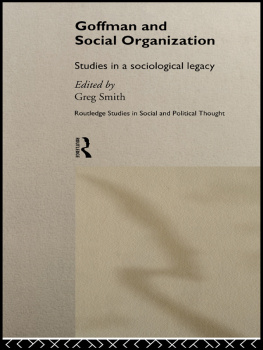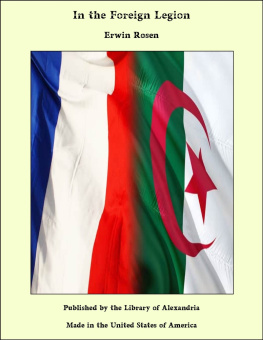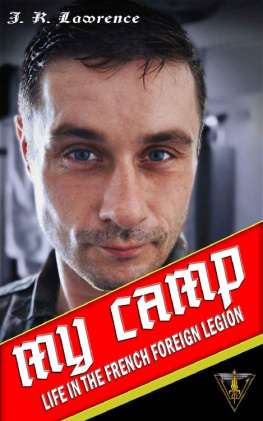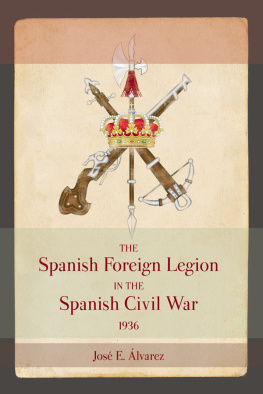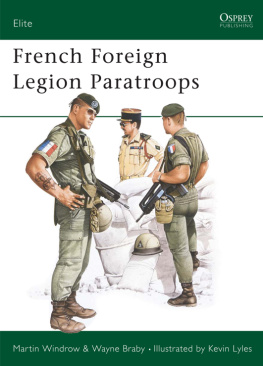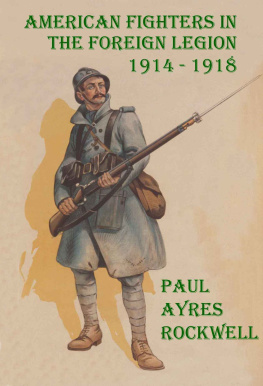A SOCIOLOGY OF THE TOTAL ORGANIZATION
Classical and Contemporary Social Theory
Series Editor: Stjepan G. Mestrovic, Texas A&M University, USA
Classical and Contemporary Social Theory publishes rigorous scholarly work that re-discovers the relevance of social theory for contemporary times, demonstrating the enduring importance of theory for modern social issues. The series covers social theory in a broad sense, inviting contributions on both classical and modern theory, thus encompassing sociology, without being confined to a single discipline. As such, work from across the social sciences is welcome, provided that volumes address the social context of particular issues, subjects, or figures and offer new understandings of social reality and the contribution of a theorist or school to our understanding of it. The series considers significant new appraisals of established thinkers or schools, comparative works or contributions that discuss a particular social issue or phenomenon in relation to the work of specific theorists or theoretical approaches. Contributions are welcome that assess broad strands of thought within certain schools or across the work of a number of thinkers, but always with an eye toward contributing to contemporary understandings of social issues and contexts.
Also in the series
Arendt Contra Sociology
Theory, Society and its Science
Philip Walsh
ISBN 978-1-4094-3863-2
Being Human in a Consumer Society
Edited by Alejandro Nstor Garca Martnez
ISBN 978-1-4724-4317-5
Hegels Phenomenology and Foucaults Genealogy
Evangelia Sembou
ISBN 978-1-4094-4308-7
The Making of a Postsecular Society
A Durkheimian Approach to Memory, Pluralism and Religion in Turkey
Massimo Rosati
ISBN 978-1-4724-2312-2
First published 2015 by Ashgate Publishing
Published 2016 by Routledge
2 Park Square, Milton Park, Abingdon, Oxon OX14 4RN
711 Third Avenue, New York, NY 10017, USA
Routledge is an imprint of the Taylor & Francis Group, an informa business
Copyright Mikaela Sundberg 2015
Mikaela Sundberg has asserted her right under the Copyright, Designs and Patents Act, 1988, to be identified as the author of this work.
All rights reserved. No part of this book may be reprinted or reproduced or utilised in any form or by any electronic, mechanical, or other means, now known or hereafter invented, including photocopying and recording, or in any information storage or retrieval system, without permission in writing from the publishers.
Notice:
Product or corporate names may be trademarks or registered trademarks, and are used only for identification and explanation without intent to infringe.
British Library Cataloguing in Publication Data
A catalogue record for this book is available from the British Library
The Library of Congress has cataloged the printed edition as follows:
Sundberg, Mikaela.
A sociology of the total organization : atomistic unity in the French Foreign Legion / by Mikaela Sundberg.
pages cm. (Classical and contemporary social theory)
Includes bibliographical references and index.
ISBN 978-1-4724-5560-4 (hardback) ISBN 978-1-3155-6524-8 (ebook)
ISBN 978-1-3171-8660-1 (ePub) 1. France. Arme de terre. Lgion trangre Organization. 2. France. Arme de terre. Lgion trangre Military life. 3. Sociology, Military France. 4. Social structure France. 5. Atomism Social aspects France. 6. Social networks France. I. Title.
UA703.L5S875 2015
355.3590944dc23
2014046293
ISBN 9781472455604 (hbk)
ISBN 9781315565248 (ebk-PDF)
ISBN 9781317186601 (ebk-ePUB)
Acknowledgements
During my research work on the French Foreign Legion, I have often been asked why I chose to investigate this organization. The book provides the scientific motivations for this, but among the more important personal reasons were eagerness to study something completely different from what I have studied earlier in my career. I wanted to explore phenomena such as dedication, escape from freedom, extreme male cohesion, and substitutability; themes which have always attracted and fascinated me, but had not yet become explicit themes in my research. The Legion seemed to be an excellent case for exploring these interests. Unsurprisingly however, my empirical work revealed that life in the Legion was not really what I thought it would be. As is common in ethnographic work, the study developed in a slightly different direction than the original interests suggested and during the analysis of my data, the theoretical turns I took made me move even further away from most of the themes above. Yet, I am happy that the interests led me there. Ethnographic work in the Legion has been a personal adventure, but my own experiences remain relatively hidden from the main body of the text. I am convinced that those who open this book do so to learn about the Legion, not about the researcher and her work. This book is therefore far from an autoethnographic account and I locate most methodological discussion in particular segments of the book.


